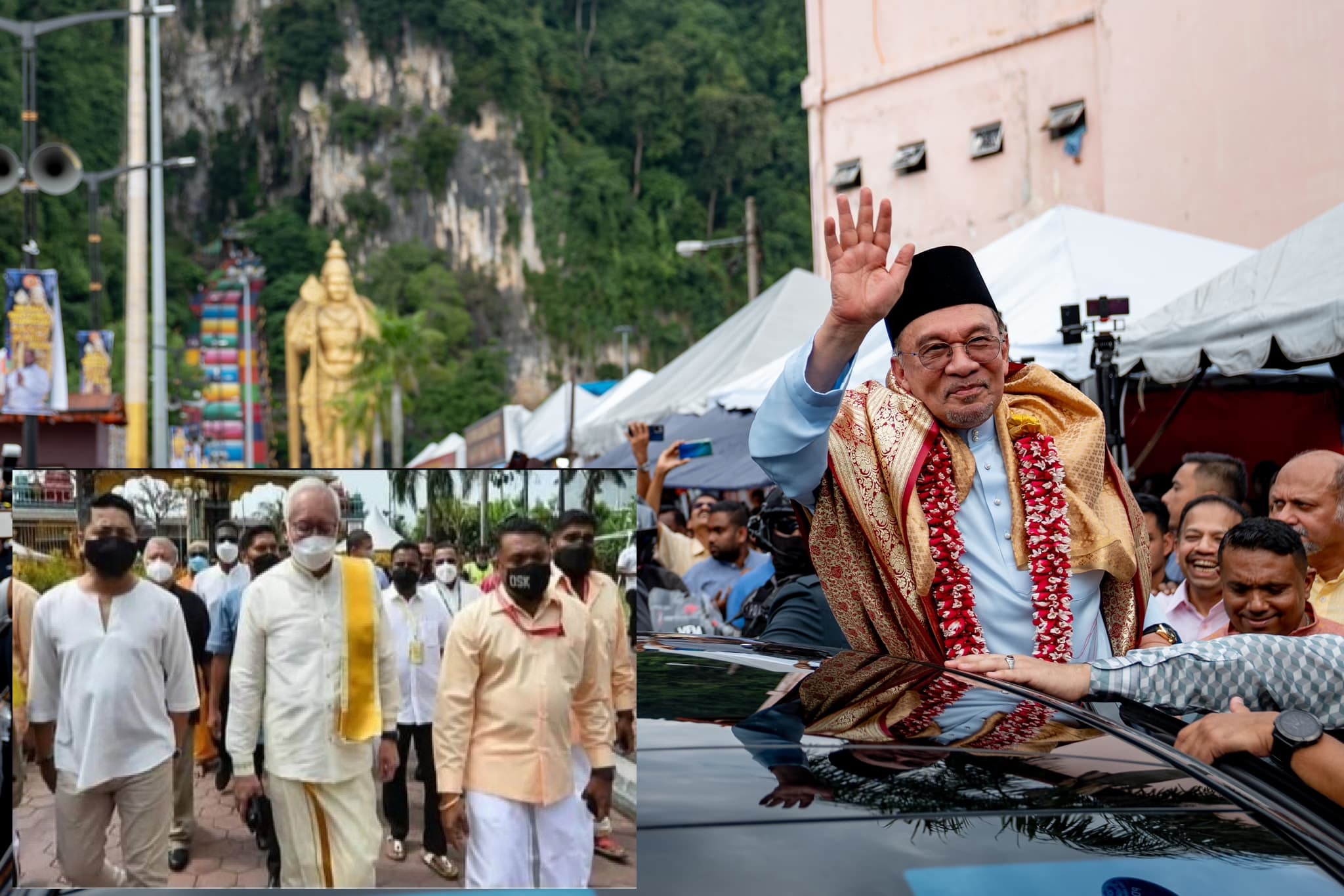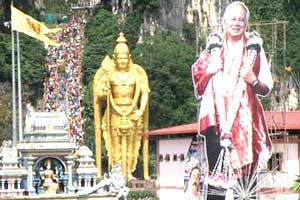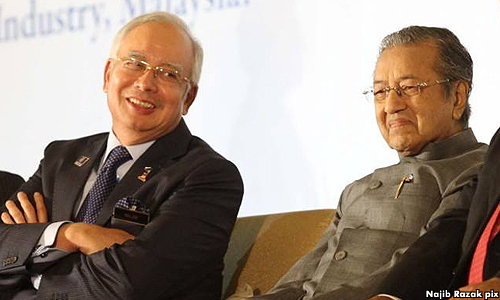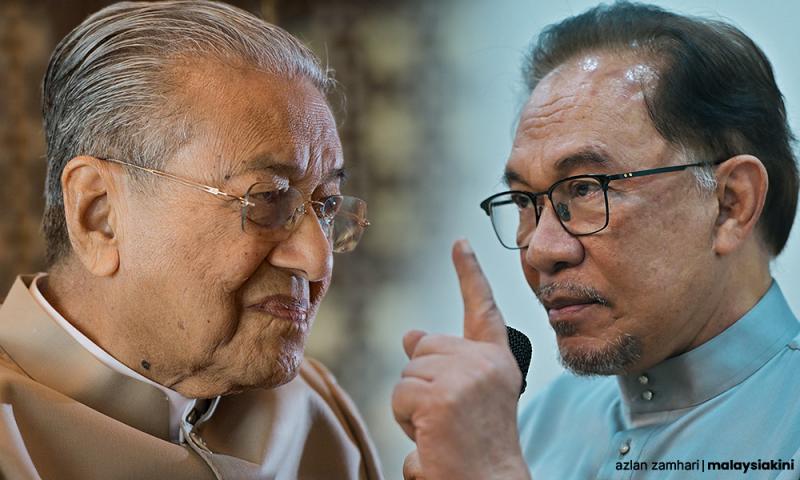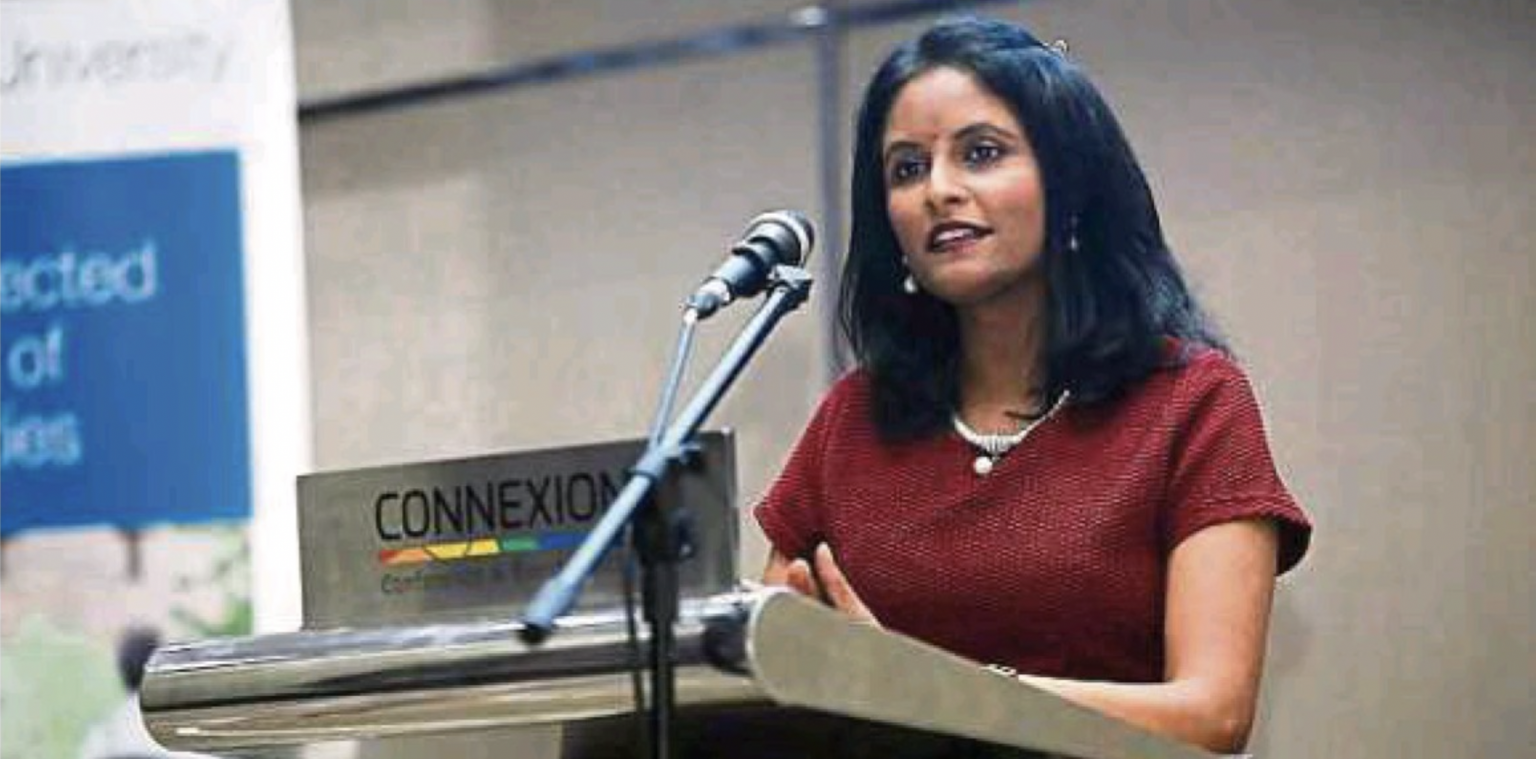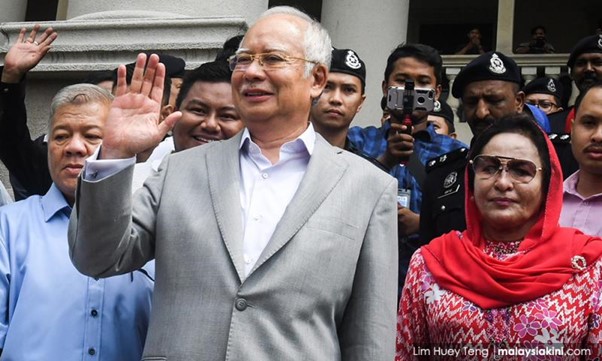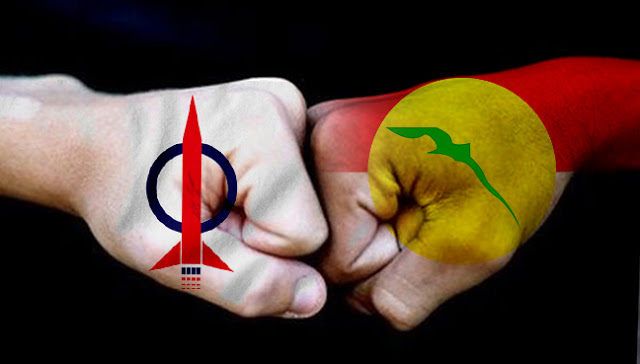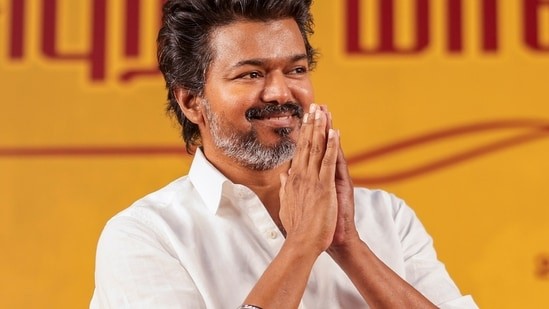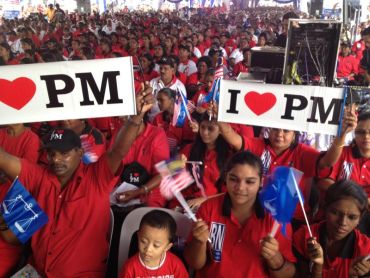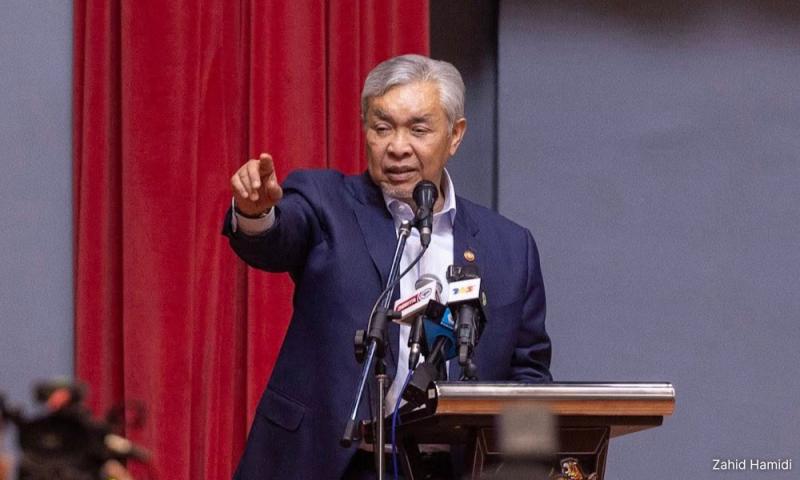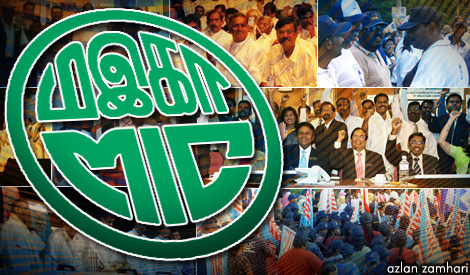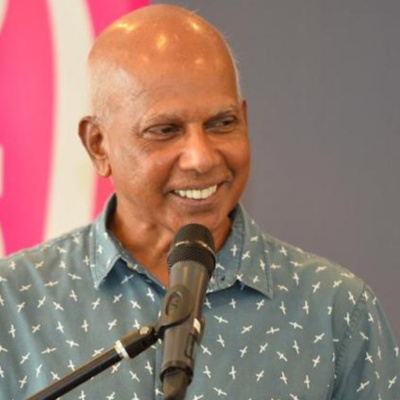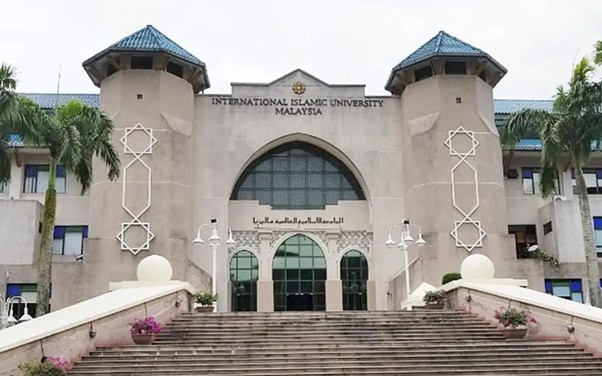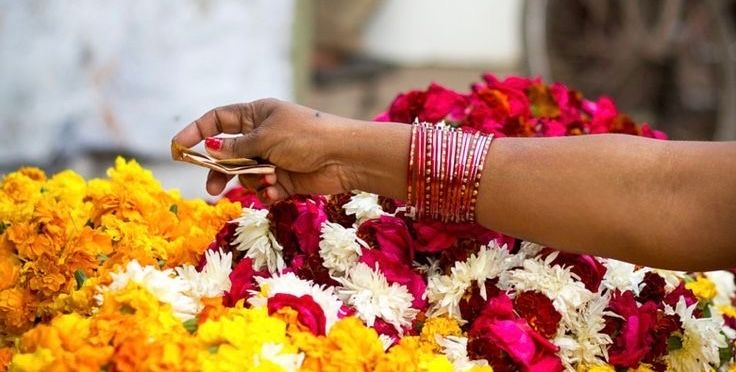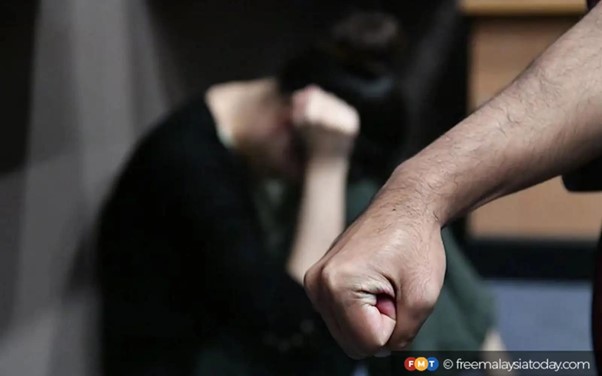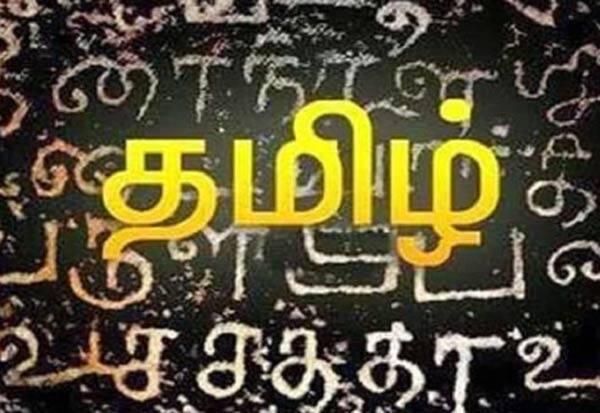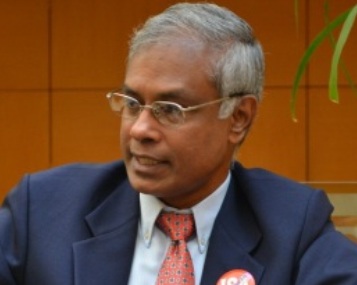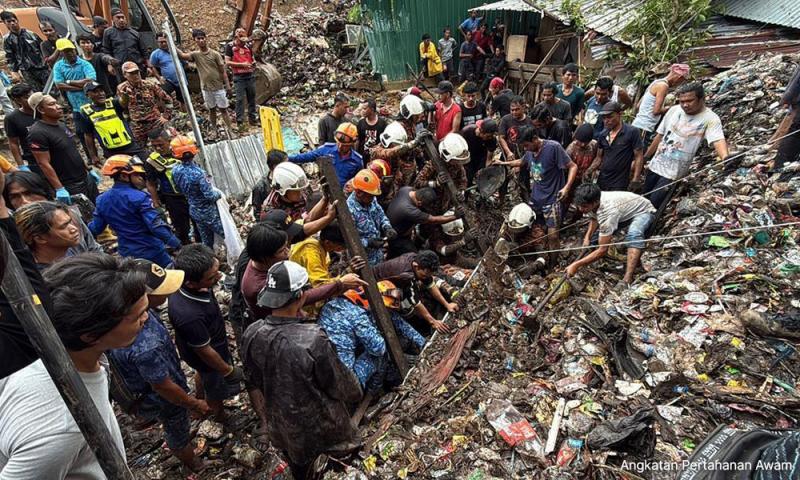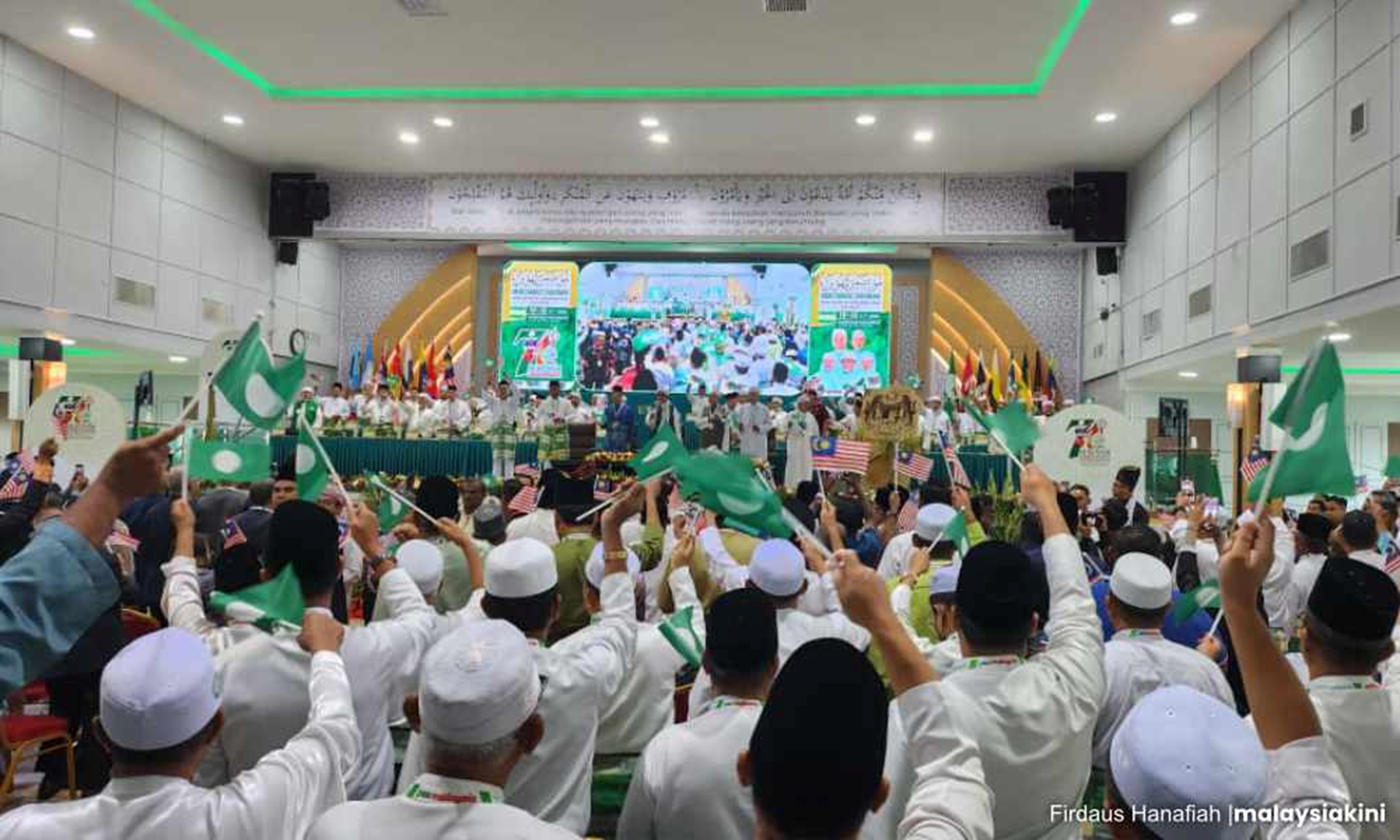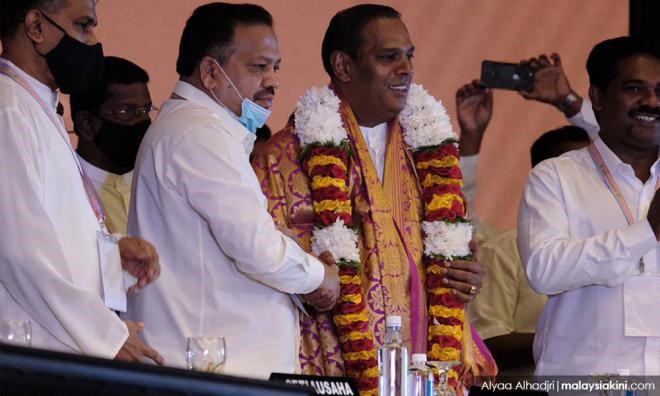- Police business is a hell of a problem. It’s a good deal like politics. It asks for the highest type of men, and there’s nothing in it to attract the highest type of men. So we have to work with what we get…”
– Raymond Chandler, ‘The Lady in the Lake’
 I have a “guilt by association” complex when it comes to journalists or former journalists. While what I write has nothing to do with journalism, whenever a journalist is harassed – someone once told me, once a journalist always a journalist – I have an overwhelming feeling of simpatico for journalists who are threatened by the Umno state.
I have a “guilt by association” complex when it comes to journalists or former journalists. While what I write has nothing to do with journalism, whenever a journalist is harassed – someone once told me, once a journalist always a journalist – I have an overwhelming feeling of simpatico for journalists who are threatened by the Umno state.
It is ironic that in a fascist state or a state trending to fascism, the written word sometimes becomes powerful in ways that could never be in lands of the free. It is also notable that in such states the police force always reminds citizens that it is the fair and just instrument of the state.
Reading the Facebook posting of Norlin Wan Musa on the treatment meted out to her husband, former journalist Sidek Kamiso, is like reading the testimonials of people who live in countries where even the pantomime of democracy has been discarded in favour of whatever kind of tyranny that the state chooses to indulge in.
When Norlin asks, “What have we become”, the answer to that question is reflected in the actions of those who invaded her home, menaced her family and dragged her husband across state lines to face charges brought on by cowardly men who file police reports as a means to stifle free speech. This is 1Malaysia in all its glory.
As I wrote when the crown prince of Johor discovered that the practitioners of the dark arts were monitoring him, “There is always that line a Malaysian crosses. That line that nobody used to talk about but these days the state assures us is there and there will be consequences if we cross it.”
What exactly are these “consequences”? If you are going to the United Nations with the intention of “addressing issues such as the refugee crisis and securing global peace”, then the least you could have is a security apparatus that does not issue threats to opposition politicians and harasses former journalists for tweeting about a deceased divisive religious operative.
Furthermore, it would behove those who pontificate on such matters, especially on securing global peace and waxing lyrical about having “standard operating procedures (SOPs) and relevant laws in Malaysia to be adhered to by everyone”, to actually have a security apparatus that actually enforces such laws, without fear or favour, instead of patrolling the Twitterverse warning Malaysians against exercising their democratic right in calling for the removal of a sitting prime minister.
Apropos everything, this is the IGP who said “I don’t have a problem if they want to ban me from Twitter. If I’m banned, there are 126,000 others who will monitor it” – which just goes to show the priorities of our police force.
This of course brings us back to the threat the IGP issued to the honourable representative from Kulai, DAP’s Teo Nie Ching (photo), “not to make statements that could create public unrest”. Add to this the horse manure about dealing with a segment of society who have lost respect for the force due to “incitement by certain parties” for their personal agenda.
The IGP also “reminded police personnel to be fearless when faced with challenges in the course of carrying out their duties”.
Politicising police investigations
For insight into the “challenges” facing the institution the current IGP leads, please refer to my article ‘Behold our guardians of order’, the relevant section, reproduced here:
“All one has to do is refer to the Royal Commission to Enhance the Operation and Management of the Royal Malaysia Police published in 2005 to address “widespread concerns regarding the high incidence of crime, perception of corruption in the Royal Malaysia Police (Polis Diraja Malaysia, PDRM), and what did this commission discover?
“Under the appropriate euphemism of ‘challenges’ as reported in the press, three areas were highlighted that needed serious reforms. Those were:
1) widespread corruption in PDRM;
2) widespread non-compliance with prescribed laws and human rights obligations among police personnel; and
3) inadequate awareness and respect for the rights of women and children.”
I would argue that the only person “politicising” the issue of police investigations is the IGP.
First off, the IGP’s comment of a “segment of society” is either a reference to opposition supporters or the Chinese community. Furthermore, his comments about “certain parties” are a clear reference to opposition political parties or personalities, which is a loaded political statement. So much for the objectivity and non-partisanship of the Royal Malaysian Police (PDRM).
Remember, this is the country’s top cop who gloatingly warned Malaysians, “@PDRMsia is warning anyone, men and women, conspiring with him to be saner and not try to threaten Malaysia’s peace and harmony” after the arrest of Lawyers for Liberty co-founder Eric Paulsen, and pompously proclaimed “Eric Paulsen is arrogant and thought he succeeded in inciting Malaysians to destroy the spirit of our 1Malaysia community.”
Then, there is the whole Jeff Ooi issue. More than a few readers have asked me what I thought about Ooi’s tweet and whether he should apologise, face sanctions or both. The short answer is:
1) I do not have an issue with what he tweeted.
2) I do not think he should be sanctioned by the state.
3) I have no issue with his party sanctioning him, for needlessly mudding the racial and religious waters.
As usual, I do take exception to the IGP “politicising” the issue by advising “politicians like Jeff Ooi” to be careful of what they post, again implying oppositional politicians, when his establishment brethren have gone to town issuing threats and warnings without sanction from the PDRM.
Just one example of how the IGP distorts the discourse. When he writes of certain quarters inciting the public against the police, the assumption is that dissent only comes from the opposition and thus it is the opposition that has agendas against the institutions of the state. This is mendacity at its finest.
When the issue of the IGP refusing to carry out court orders and fulfilling his obligations to the people of Malaysia in the last unilateral conversion case was raised, the MCA put out a press statement stating:
“The IGP must not shirk responsibility by claiming that he is conflicted between the custody order of the Syariah Court and the apex court. The mother Indira Gandhi (photo) has been separated from her daughter (Prasana) Diksa for close to seven years already, whilst (Mohd) Ridhuan (Abdullah @ K Pathmanathan) is repeatedly in contempt of High Court orders awarding custody to the mother.”
And reminding the IGP that failure to discharge his duties will result in “people in contravention of the judicial decisions like Ridhuan will be emboldened to continue to break the law, knowing that their actions will be condoned by the IGP.”
Of course, there are many examples where the perpetrator and victim are sanctioned as evidence of how the Umno state is fair and just – but this is beyond the scope of this article and fodder for another piece.
The day Ali Tinju’s wife makes a Facebook posting of warrantless sleep deprived by agents of the state invading her home and dragging her husband across state lines to answer charges filed against him, even though he was just exercising his right of free speech, is the day “that segment of Malaysian society” who have apparently lost respect for the PDRM may begin to rethink the idea that the PDRM is just another instrument of Umno.
S THAYAPARAN is Commander (Rtd) of the Royal Malaysian Navy.


